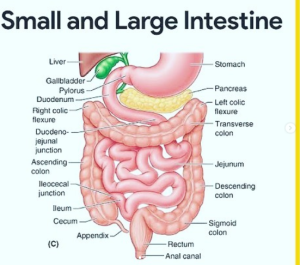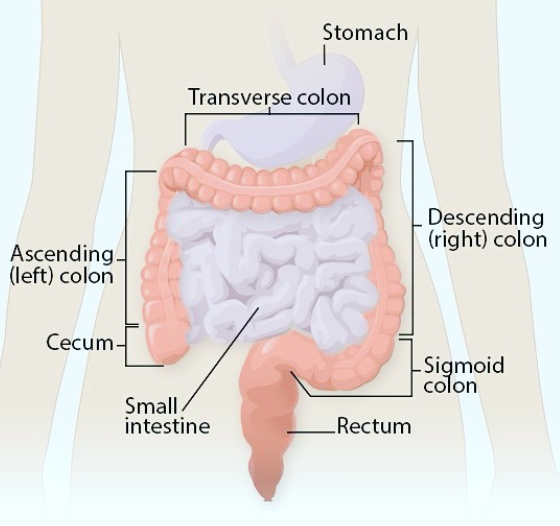Table of Contents
Health Desk, Delhi- Magazine: If you want to avoid diseases like digestion and inflammation, then you need to keep your gut healthy. The intestine includes the digestive organs—the mouth, food pipe, stomach, pancreas, liver, gallbladder, small intestine, colon, and rectum.
What are the most useful foods for the intestines?
The food we eat affects the bacteria in our gut. Just as there are foods that harm the microbiome, there are foods that nourish it. The digestive tract is made up of billions of beneficial bacteria, thanks to which food particles are broken down and assimilated, and as a result a number of important processes take place in the body. A healthy diet encourages the growth of good bacteria in these organs, which breaks down food easily and helps in smooth digestion, so that all the food gets absorbed by the body properly.
That’s why today we will tell you about these foods which can help you a lot in keeping your intestines healthy. By consuming these foods daily, your immunity will also be boosted.
- Luke Warm Water in the Morning: Drinking lukewarm water after waking up in the morning helps in cleaning the intestine, formation of new blood, reducing weight and giving glow to the skin.
- Apple: Daily consumption of apple keeps the body healthy and it is also helpful in keeping many diseases away. If an apple is consumed daily, then it removes the problems related to digestion. It is rich in fiber as well as very low in calories. If you want to keep the weight under control, then you can include apples in the daily diet. The problems related to the intestines are also removed by the daily consumption of apple.
- Papaya: Consumption of papaya is good for intestinal health. Its consumption helps in removing problems related to the intestines. By eating papaya, the body remains energetic for a long time. At the same time, many problems related to gas are also removed by its consumption.
- Yogurt: Yogurt contains probiotic bacteria and yeast, from which derives its fermented nature. Natural fermentation thanks to beneficial bacteria and microorganisms makes food extremely useful for the intestines and indirectly for the immune system, as immune cells depend largely on intestinal processes and the proper absorption of nutrients. Yogurt also contains useful proteins and fats, which give additional impetus to intestinal bacteria.
- Bananas: Bananas help keep your intestines healthy, provide heart-rending nutrients, and provide essential vitamins for health. Banana is a very beneficial fruit for the stomach, which helps to cure your upset stomach naturally.
- Red Wine: Red wine differs from other types of alcohol in that it contains natural fermented phytochemicals, polyphenols, which are found in red grapes. They have powerful antioxidant properties that are important for the intestinal flora. These compounds have a positive effect on the number and diversity of beneficial bacteria in the gut.
- Pineapple: Pineapple contains a wonderful enzyme called bromelain. Its biggest contribution is in breaking down the food so that the food is easily absorbed by the body. Most inflammation-causing cytokines enzymes cause intestinal disturbances. The bromelain present in pineapple allows very little of this enzyme (cytokines enzyme) to be produced. Therefore, eating pineapple reduces the chances of causing inflammation in the intestine.
- Garlic: Raw garlic contains a compound called inulin which helps in giving rise to good bacteria in the gut. It is a pre-biotic food that is rich in dietary essentials such as manganese, selenium, vitamins C and B6 and allicin. Studies have found that allicin is very effective in fighting disease. To get relief from stomach related problems, the home remedy is that one should eat raw garlic every morning on an empty stomach. By doing this, cough-cold and any kind of inflammation get relief. Garlic contains disease-fighting compounds and will give you great relief from bowel problems.
- Protien Food: If you want to keep your intestines healthy, then you should definitely consume protein in the food. Protein is essential for better health. You must include protein like cheese, pulses, whole grains or eggs in two meals of the day. Apart from this, you should also include fruits and vegetables in the diet. Protein keeps your stomach healthy. Apart from this, protein is also helpful in weight loss.
- Kiwi: Kiwi is less sweet in taste but it is very helpful in keeping the health and digestive system strong. An element called actinidin is found in kiwi, which removes many problems related to the intestines. Digestive system gets strengthened by its consumption. If you want to keep the intestines healthy and away from diseases, then kiwi can be included in the diet.
Reason of Intestinal Disorders:
Whatever we eat and drink, its digestion and absorption takes place mainly in the small and large intestine. This is where most nutrients are absorbed. Water is absorbed in the large intestine, while minerals, vitamins and other substances are absorbed in the small intestine. Being sick with the intestines affects not only the digestion of food, but also the absorption of nutrients.

There are some major reasons for making the intestines sick.
- Eating more than the body needs.
- Eating heavy and heavy meals at night.
- Don’t eat breakfast.
- Taking long gaps in meals.
- Take more fluids after meals.
- More fried and spicy food.
- Not being physically active.
- Stress and insomnia.
You would also love to read about: home remedies to increase stamina.
Effect of intestinal disturbances
Disturbances in the normal functioning of the intestines also have an effect on our heart, brain, immune system, skin, weight, hormone levels in the body, etc. This affects the absorption of nutrients and increases the risk of developing cancer. Malfunction of the intestines increases the risk of the following health complications:
- Digestive system disturbances.
- Excessive gain or loss of weight.
- Having problems with insomnia.
- Constant tiredness.
- Skin related problems.
- Auto immune disorder. That is, damage to the body’s own healthy cells only.
- Difficulty in digestion of certain foods.

